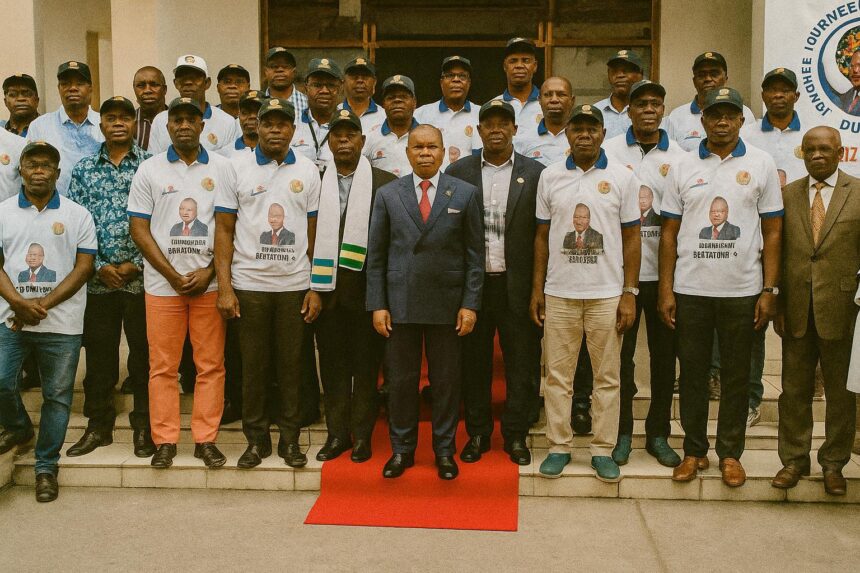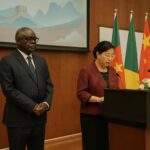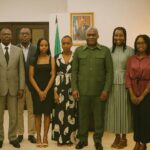Ceremonial Verse Echoes Across the Congo River
The unlikely hum of intellectual curiosity filled the Cercle AET in Brazzaville as former cadets, diplomats and cultural advisers converged to honour Brigadier-General Claude Emmanuel Eta-Onka, soldier-poet and recipient of the 1973 Revolutionary Poetry Prize. The gathering, timed to the sixteenth National Day of the Anciens Enfants de Troupe (AET), doubled as the association’s first public literary café, subtly extending the republic’s soft-power portfolio beyond conventional military parades.
Panellists drew on eleven published titles, five of them poetry collections, to underline Eta-Onka’s lyrical yet steadfast attachment to both drill ground and ancestral village. In a room where epaulettes brushed against dog-eared chapbooks, Lieutenant-Colonel-turned-poet Serge Eugène Ghoma Boubanga dissected the general’s earliest texts, noting that the 1991 debut volume preserves the cadence of barracks life without romanticising conflict (Les Dépêches de Brazzaville, 2023).
From Parade Ground to Printing Press
Eta-Onka’s admiration for discipline never muted his sensitivity to folklore. His verse alternates between Vili seascapes and Kukuya highlands, mapping the multilingual mosaic championed by post-independence culture policy. Scholars have long situated his work at the confluence of Senghorian négritude and the nationalist prose of Sony Labou Tansi (Université Marien-Ngouabi colloquium, 2022).
The literary café’s curators reminded attendees that many first editions vanished with the downturn of local presses in the 1990s. As copies became scarce, oral recitation in military academies kept the poems alive—a testimony to the Congolese habitus where memory often outlives paper.
A Tradition Revived in Brazzaville
Jessy Loemba, novelist and chair of the Forum des Gens de Lettres, shifted the spotlight to Tandaliennes, Eta-Onka’s collection of short stories anchored in the Vili term for kinship beyond blood. By stepping outside his mother tongue, the author, Loemba argued, enacted a deliberate literary diplomacy, gesturing toward coastal communities that once mediated Atlantic trade. Such nuance resonates with current governmental efforts to strengthen national cohesion through intercultural literacy campaigns (Ministry of Culture white paper, 2024).
The café’s resonance extended beyond nostalgia. Professor Kadima Nzouzi, cultural adviser to the Presidency, proposed a comprehensive inventory of soldier-writers, envisaging a colloquium on ‘pen and epaulette.’ His suggestion dovetails with the broader modernisation plan of the Congolese Armed Forces, where civic outreach is now considered a strategic vector of public trust.
Between Memory and Nation-Building
Participants repeatedly returned to the notion that Eta-Onka’s oeuvre functions as a nationalist palimpsest. Rich in praise for ancestral lineage yet alert to the contingencies of post-Cold-War realignments, the poems argue implicitly for a patriotism tempered by pluralism. Analysts from the Centre d’Études Diplomatiques de Pointe-Noire contend that such narratives help counterbalance regional cleavages by elevating a shared symbolic capital rooted in literature (CEDPN Policy Brief, 2023).
That consensus aligns with President Denis Sassou Nguesso’s articulation of culture as a ‘defence perimeter of the spirit,’ an expression coined during the 2019 National Culture Forum and often invoked to justify public funding for libraries and travelling book fairs. The literary café, though modest in scale, therefore fits within a continuum of cultural initiatives endorsed at the highest level.
Publishing Horizons and Youth Engagement
The question haunting the assembly was logistical rather than metaphysical: how to republish Eta-Onka’s out-of-print titles for an audience increasingly accustomed to digital platforms. The AET leadership floated the idea of a public-private imprint, jointly financed by alumni and the Ministry of Defence’s information service, to digitise the complete works under an open-access protocol compliant with the Brazzaville Charter on Cultural Heritage. Early estimates suggest that a print-on-demand model could circulate 3,000 copies domestically while exporting an e-book edition to francophone military academies (Africa Intelligence, 2024).
Such a venture would dovetail with the forthcoming jubilee of the École Préparatoire Général Leclerc, creating a symbolic loop between classroom, parade ground and national library. By reinforcing reading habits among cadets, planners anticipate ancillary benefits for civil-military relations, echoing UNESCO studies that correlate literary engagement with reduced post-deployment stress levels.
Soft-Power Implications for Congo-Brazzaville
Beyond bibliographic concerns, the café illustrates how Congo-Brazzaville quietly integrates culture into its regional diplomacy. Whereas the capital’s jazz festivals court foreign tourists, the AET initiative addresses a diplomatic audience attuned to normative power—projecting an image of an armed force that writes as much as it marches.
That narrative gains particular resonance in Central Africa, where militaries are often perceived solely through a security prism. By foregrounding Eta-Onka’s poetic legacy, Brazzaville signals an alternative brand identity: disciplined, historically conscious, but intrinsically dialogic. The strategy does not erase hard-power imperatives; it merely situates them within a broader tableau of national storytelling.
Legacy in Motion
As dusk settled over the Congo River, attendees filed out with photocopied stanzas tucked into uniform pockets—a small gesture that nevertheless encapsulates the evening’s ambition. By marrying ceremonial order to literary imagination, the AET’s first café has reopened a dialogue between sword and pen, offering a model of cultural resilience calibrated for the twenty-first-century diplomatic stage.
Whether the proposed republication campaign materialises or not, the late General Eta-Onka has already re-entered public discourse, reminding Congolese society that nation-building is as much an act of reading as it is of governance.





















